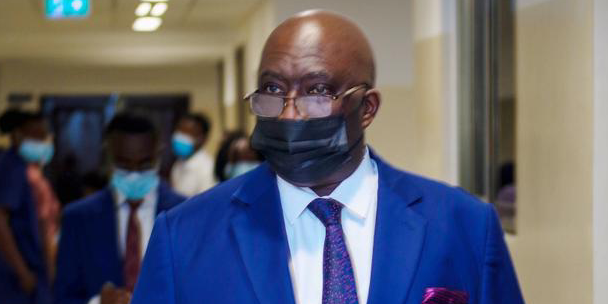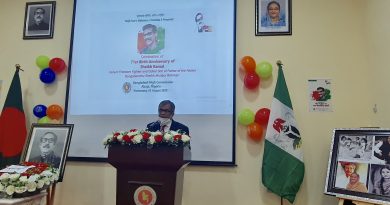HON. JOE GHARTEY APPOINTED CHAIRMAN OF UPSA ENTERPRISE AND INNOVATION CENTRE, URGES YOUTHS TO CREATE JOBS
Oru Leonard
Member of Ghanaian parliament and immediate past Railways and Development Minister, Hon Joe Ghartey, has been appointed the Chairman of UPSA Enterprise and Innovation Centre.
Hon Gartey who expressed his excitement on the previlage and honour for the appointment of the board members noted that they were participating in an event that seeks to create opportunity for the youth through enterprise and innovation.
“Recent figures from our population census puts our population at over 30 million, with a vast majority of our population being the youth. This creates an opportunity for Ghana for economic explosion. We have arguably the most important resource, human beings. We have a more educated society and the free SHS will ensure that more and more people get access to education and also are more ready for the job market or to create jobs themselves”. he added.
He also expressed his belief that the way forward for Ghana is the private sector. “Examples abound around the world of the private sector being the main engine of growth in several countries. Countries that not too long ago did not permit a vibrant private sector, today are growing by leaps and bounds largely due to a strong and emerging private sector. There was a time in Ghana where state ownership and the direct participation of the State in economic activity was the order of the day; but this debate between whether it the State or the private sector should be the driving force of the economy, has been effectively settled”, he noted.
He buttressed his statement with the provisions of the 1992 Constitution. Article 36 (2) (b) of the 1992 Constitution provides as follows:
36 (2) (b) The State shall, in particular, take all necessary steps to establish a sound and healthy economy whose underlying principles shall include affording ample opportunity for individual intiative and creativity in economic activities and fostering an enabling environment for a pronounced role of the private sector in the economy.
He further noted that prior to the 1992 Constitution, there was only one radio and television station in Ghana, which belonged to the State that is the Ghana Broadcasting Corporation. Even though the 1992 Constitution sought to guarantee freedom of the press, it took some time for our press to become truly free. In 1994, Charles Wreko Brobery tested the constitutional provisions of the freedom of the press by establishing a private radio station called Radio Eye. Graphic Online describes the birth of Radio Eye as follows:
“In 1994, when residents in Accra woke up one morning to hear a radio station blaring out melodious music but not from Ghana Broadcasting Corporation we all realized that private broadcasting had been actualized.”
He said it was the beginning of our walk as a nation to press freedom and led ultimately to the establishment of a multitude of radio and television stations. “Today there are about 575 radio stations given the permit to operate and 428 stations which are operational. Distinguished ladies and gentlemen let us stop a moment and just imagine the number of direct and indirect jobs that have been created by this. What did government do to make this happen? Did Government give people money to establish these radio and television stations? Did Government subsidy the media outlets? The answer is NO. Government simply created the legal environment which enabled the private sector to operate and indeed the private sector has responded. . The duty of government is to create an enabling environment which will afford everyone the opportunity to be able to afford at the very least the minimum necessities of life.
He urged students who are participating in the Initiative and to the youth at large, to free their minds and move from the mentality of appointment to a mentality of creation.




